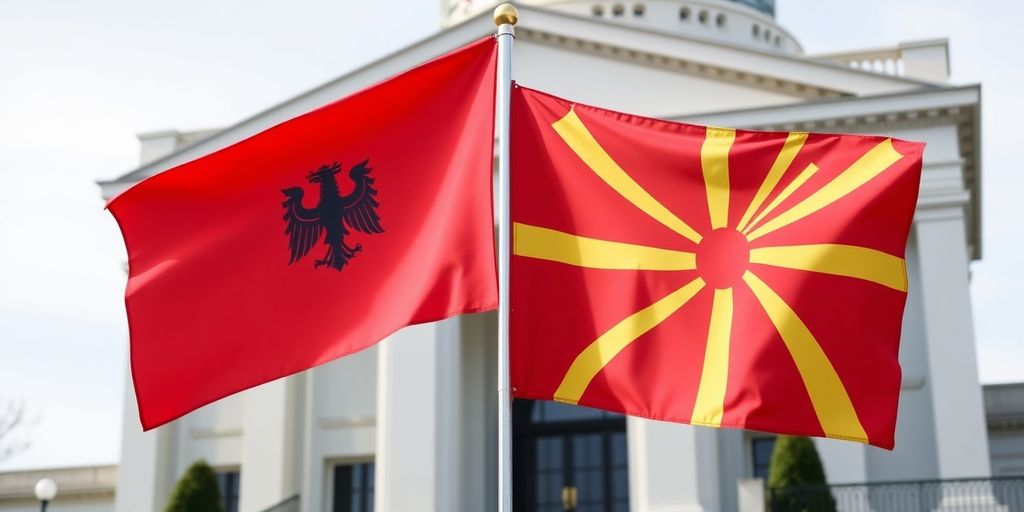The Alliance for Albanians, a junior partner in North Macedonia’s government, has announced its withdrawal from the ruling coalition. Led by Arben Taravari, the party cited "unfulfilled promises" as the reason for its departure, marking a significant shift in the country’s political landscape and moving the party into opposition after a year in power.
Key Takeaways
- Alliance for Albanians (AA) withdraws from North Macedonia’s government.
- Party leader Arben Taravari cites "unfulfilled promises" as the reason.
- The departure of five MPs does not jeopardize the government’s majority.
- A small cabinet reshuffle is expected to replace AA ministers.
- The move highlights tensions within the ethnic Albanian political bloc ahead of local elections.
Reasons For Withdrawal
The Alliance for Albanians, led by Health Minister Arben Taravari, announced its exit from Prime Minister Hristijan Mickoski’s government after approximately one year. Taravari stated the decision was driven by "unfulfilled promises," indicating a breakdown in trust and cooperation within the ruling coalition. The party will now function as an opposition force.
Government Stability And Reshuffle
Despite the Alliance for Albanians’ departure, the government maintains a comfortable majority in the 120-seat parliament, holding 77 legislators. Prime Minister Mickoski is anticipated to undertake a minor cabinet reshuffle to fill the positions previously held by AA ministers and deputies, including Taravari’s role as Health Minister.
Internal Tensions And Political Dynamics
The withdrawal follows weeks of strained relations within the governing alliance. In April, three of the four ethnic Albanian parties forming the junior Vlen (It’s Worth It) alliance opted to unify, but Taravari’s AA chose a different path. Taravari expressed concerns about the union and criticized the perceived lack of strong Albanian representation in Mickoski’s government. This stance led to accusations from other Vlen leaders of political indecision, though Taravari denied any flirtation with the opposition Democratic Union for Integration (DUI).
The Role Of Ethnic Albanian Parties
The stability of North Macedonia’s government traditionally relies on strong support from an ethnic Albanian partner, as Albanians constitute about a quarter of the population. Taravari played a crucial role in strengthening the Vlen alliance against the long-standing DUI in last May’s elections, contributing to the ousting of the Social Democrat-led government. His decision to join Vlen helped challenge DUI’s popularity among Albanians.
Implications For Upcoming Elections
While Vlen trailed DUI in the last elections, it became Prime Minister Mickoski’s preferred partner. The Alliance for Albanians’ departure could weaken one of the government’s key pillars. A poor performance by Vlen in the upcoming October local elections could bolster the DUI, which has consistently claimed to be the rightful representative of the Albanian community and accused Mickoski’s cabinet of marginalizing Albanians. This scenario could intensify political pressure on the Prime Minister post-election.






